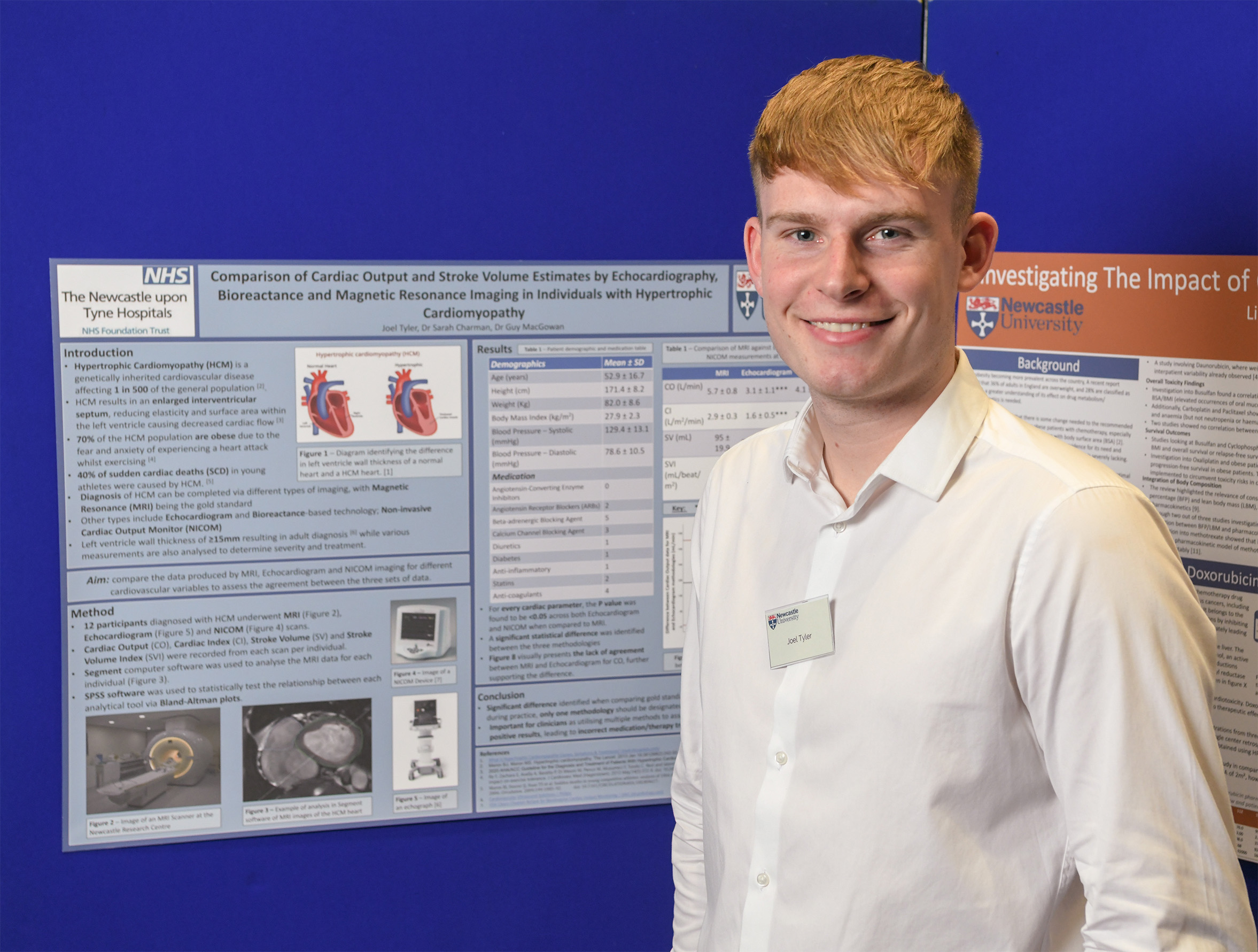Participants
 Joel Tyler
Joel Tyler
- Comparison of Cardiac Output and Stroke Volume Estimates by Echocardiography, Bioreactance and Magnetic Resonance Imaging in Individuals with Hypertrophic Cardiomyopathy
- BSc Physiological Sciences with Professional Placement
One in five hundred individuals are diagnosed with hypertrophic cardiomyopathy (HCM) [1], a genetically inherited cardiovascular disease resulting in an enlarged left ventricle within the heart and causing a reduction in cardiac bloodflow [2]. Various methodologies are used in practice to assess specific cardiovascular variables and determine the severity of the disease in patients. This information is then used to identify which medication/therapy treatments patients will undergo to help reduce symptoms and risk of sudden cardiac death. My aim was to compare cardiac data produced by the gold standard magnetic resonance imaging (MRI) with alternative techniques (echocardiogram and bioreactance) to assess the agreement between these methods. Paired t-tests and Bland-Altman plots revealed that both echocardiogram and bioreactance cardiac output and stroke volume data were signifcantly different compared to MRI data. In conclusion, only one methodology should be utilised across future testing to prevent false positives and ultimately incorrect medication/therapy administration.
References:
1. Maron BJ, Maron MS. Hypertrophic cardiomyopathy. The Lancet. 2013 Jan 19;381(9862):242-55.
2. Ommen SR, Mital S, Burke MA, Day SM, Deswal A, Elliott P, Evanovich LL, Hung J, Joglar JA, Kantor P, Kimmelstiel C. 2020 AHA/ACC guideline for the diagnosis and treatment of patients with hypertrophic cardiomyopathy: a report of the American College of Cardiology/American Heart Association Joint Committee on Clinical Practice Guidelines. Journal of the American College of Cardiology. 2020 Dec 22;76(25):e159-240.
Funded by: European Union's Horizon2020 Research and Innovation Programme under Grant Agreement 777204 for the SILICOFCM project and Newcastle University Research Scholarship
Project Supervisor: Dr Sarah Charman
